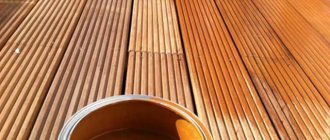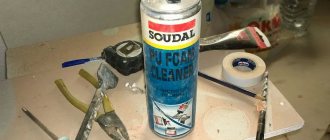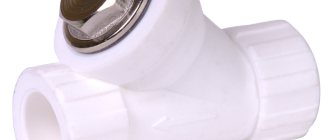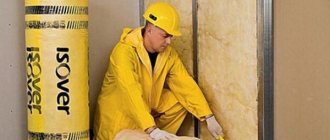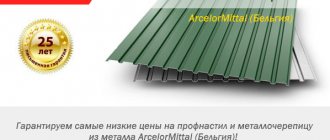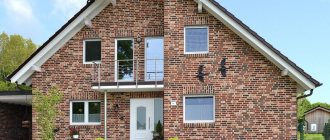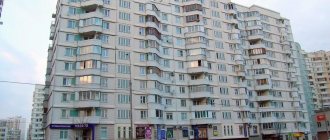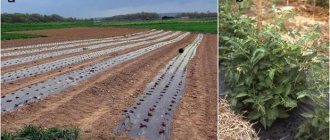One of the most important quality criteria for mineral wool is its environmental safety. the determining factors for the safety of the material:
- Length and diameter of mineral fibers;
- Quality and chemical composition of the binder;
- Availability of environmental certificates from the manufacturer.
Rockwool - stone wool without disadvantages
Despite its Danish roots, Rockwool has many factories in Russia, which allows the company to offer a range of European quality, but without unnecessary price markups. The high quality of this mineral wool is confirmed by builders who consistently choose products from the Danish brand when carrying out work.
Rockwool mineral wool has enhanced characteristics:
- fire safety - Rockwool fibers can withstand up to 1000 degrees with standard data of 600 degrees Celsius;
- absorption of sound and vibration, which is why the material is chosen to create noise barriers and to increase the acoustic comfort of rooms;
- environmental friendliness - Rockwool has an EcoMaterial Green certificate, although it has long been known that many people do not like mineral wool, attributing to it properties that are dangerous to the environment, life and human health;
- durability without deformation and destruction;
- thermal insulation.
We are, of course, talking about real Rockwool; purchasing from unreliable suppliers does not guarantee the above-mentioned quality.
Our rating : 10 points out of 10
Reviews : “Rockwool light butts mineral wool is the best - it holds its dimensions perfectly and does not fray.”
“The house was saved in a fire only thanks to the presence of Rockwool slabs in the ceiling - it does not burn, does not shrink, and does not form dangerous voids at high temperatures.”
Types of insulation
All Ursa developments are based on the use of two materials, which, due to the optimal combination of advantages and disadvantages, are recognized as the best thermal insulators. We are talking about fiberglass and extruded polystyrene foam.
The use of these insulation materials in combination with the latest technologies has allowed the company's engineers to create several series in which any buyer can find a suitable option. Let's tell you more about them.
Ursa G insulation
Ursa G thermal insulation differs from ordinary glass wool, first of all, in the absence of phenol-containing additives, which makes this insulation absolutely impeccable from the point of view of environmental safety. Thanks to this approach, the release of volatile components was reduced to minimal volumes, amounting to less than one tenth of the permissible standard values.
Ursa G series insulation can have different densities and are available in the form of flexible mats (supplied in rolls) or rigid slabs.
The material is non-flammable (zero fire hazard class) and is characterized by absolute chemical and biological resistance. In addition, fiberglass perfectly absorbs sound waves.
The service life declared by the manufacturer is 50 years. But for fiberglass products this is not the limit; they can last longer. At the same time, age does not in any way affect the condition and technical characteristics of these heat insulators.
Flaws:
- Actively absorbs moisture, which is why it requires the installation of a waterproofing shell
- Fiberglass is thorny, so all work must be carried out with gloves
- The material is characterized by the formation of some dust
PureOn series insulation
This insulation is the latest development by Ursa engineers and is an advanced fiberglass material.
By using acrylic as one of the binders, it was possible to eliminate the main disadvantages inherent in glass wool: causticity, irritating effects on the skin, dust formation. The resulting material is soft, reminiscent of cotton or wool, has more pronounced soundproofing properties and is practically dust-free. You can work with this material without gloves; due to its absolute safety, it is recommended for use in kindergartens, schools, and medical institutions.
Another important advantage of PureOn insulation is elasticity. Thanks to this property, it completely fills the space in which it is installed, being firmly held in it due to the spacer force.
Ursa XPS insulation
The basis of all insulation in this series is extruded polystyrene foam, manufactured using advanced technology.
One of the main advantages of insulation in this series, besides, of course, excellent thermal insulation properties, is almost complete waterproofness.
A sample completely immersed in water adds no more than 0.3% in volume per day. In addition, XPS series polystyrene foam insulation is characterized by high compressive strength: various brands can withstand loads of 25 - 50 tons per square meter. m.
When using Ursa XPS insulation for external thermal insulation of buildings, almost zero vapor permeability should be taken into account. If you use this type of insulation for walls inside an apartment or house, then the room must have effective ventilation.
To insulate the facades of buildings with high humidity in rooms such as saunas, baths or swimming pools, Ursa XPS series insulation should not be used.
A significant disadvantage of polystyrene foam is that it is a fire hazardous material. Various additives, such as fire retardants, can prevent ignition, but when exposed to fire and high temperatures, thermal decomposition begins in polystyrene foam, accompanied by the release of large amounts of very toxic smoke.
There are cheaper insulation options; for example, sawdust “functions” well as insulation. Study the detailed pros and cons of this material and make your choice.
Among the inexpensive insulation materials is foam plastic as insulation, about which you can read more in this article. All options are good if they are used as intended.
Paroc mineral wool - excellent quality, but high price
Having opened any construction forum, in the topic “thermal insulation” you immediately come across the brand name Parok. Its basalt mineral wool firmly occupies a leading place in the user ratings, and there are many reasons for this. After all, Paroc means the same quality of products regardless of the location of the plant, and the best characteristics for all the main indicators of mineral wool.
Paroc's main focus is on energy efficiency. Basalt wool Parok allows:
- save energy, including heat;
- do not have a negative impact on the environment;
- protect from noise and dust;
- ensure fire safety.
This manufacturer has realized all the advantages of stone wool, there are practically no fakes, but there is still a drawback
Rating : 9.9 points out of 10
Reviews : “I like Paroc mineral wool the most! This is what I’m planning for the roof of my house.”
Isover - high quality mineral wool to choose from
The manufacturer offers two solutions: glass wool and stone wool. This is a big plus when choosing thermal insulation, since both of these materials are usually in demand in the construction of a particular facility. Izover has an excellent reputation in Russia and offers thermal insulation only with environmental quality certificates. The constant introduction of modern technologies makes it possible to improve the characteristics of manufactured products and reduce costs. The latest “new product” from Isover is the release of mineral wool with high strength and elasticity, without dust and with a minimum of “prickliness”. In terms of quality, products under this brand are unlikely to compare with more expensive competitors, but in terms of price/quality ratio, Isover mineral wool is one of the best.
Knauf produces everything!
Knauf is a manufacturer that has proven more than once that it can provide the construction market with the best offers. Thermal insulation is no exception. Knauf offers good quality mineral wool based on basalt fiber, as well as glass fiber composition. The first option is widely used for technical insulation, in construction and in the production of complex equipment. Fiberglass insulation is produced for specialized purposes (TEPLOKnauf), as evidenced by its names:
- HEATWALL;
- HEAT stove;
- WARM roofing;
- Acoustic partition;
- HEATROLL.
Most of the mineral wool sold by the manufacturer belongs to the Knauf Insulation series. There are no toxic phenol-formaldehyde resins used in the production of this product. The Knauf Insulation and TEPLOKnauf thermal insulation lines are intended for the construction of residential buildings by individuals and construction organizations.
Disadvantage : high price
Rating : 9.9 points out of 10
Reviews : “You rarely hear a bad word about Knauf. This means that the material is truly excellent.”
Sizes at your discretion
Standard forms of release are slabs and rolls. Standardized dimensions are 1250 mm in length, 600 mm in width and 50 mm. To expand the range and for the convenience of consumers, the manufacturer offers options for length - from 1000 mm to 6.2 m and thickness - 100 mm. The material cuts well and does not cause difficulties when calculating the required quantity.
Due to their chemical composition, insulation from URSA® has a temperature range of use from minus 60 to plus 220 degrees Celsius. The average density of the material is 20 kg per cubic meter.
Insulation sheets and mats are not susceptible to moisture. So, when the material is partially immersed in water, its water absorption will be about one liter per square meter of surface.
Today, the world of insulating substances is quite crowded.
More frequent crises in construction and, as a consequence, a drop in consumer demand have provoked an intensified struggle for clients. Against this background, URSA demonstrates enviable calm. The reason here is obvious - excellent quality, excellent characteristics and a fair price - this is what the consumer was waiting for and his hopes were not deceived!
URSA insulation in house construction. Insulation of a frame house with mineral wool ARSENAL.BY
Ursa - a new generation of mineral wool
For a long time, the Ursa brand was known for its fiberglass products. But technology does not stand still, and today the company offers the market PureOne - a new generation of mineral wool made from natural and naturally renewable components, interconnected with an acrylic-containing binder.
The effectiveness of PureOne in terms of heat and sound insulation is very high, there are almost no complaints about other characteristics. The material has a bright white color, does not chip, does not crumble, and does not deform.
In addition to PureOne, Ursa also offers a standard range of glass wool, with all their disadvantages and advantages. The cost of products does not differ from analogues of other companies.
Rating : 9.8 points out of 10
Reviews from builders : “PureOne is the best mineral wool; its elasticity and rigidity are 1.5 times higher than traditional fiberglass insulators.”
“A friend who has been working on the construction of dachas for many years said: take Ursa insulation, you won’t regret it - it keeps you warm, it’s easy to work with, and it doesn’t burn. I insulated the attic at the dacha, then I itched for a week, but the house is now warm.”
Technical characteristics of URSA mineral wool
Technical characteristics of URSA mineral wool The mineral wool is based on glass fiber, in the manufacture of which dolomite, sand and other additives are used.
All components are melted and drawn into thin threads. Next, the fibers are glued together with a special adhesive with anti-feathers. Due to its structure, URSA mineral wool is suitable for heat and sound insulation of house facades, interior partitions, etc. But in the line of insulation from this manufacturer there is not only glass wool, but also extruded polystyrene foam URSA XPS, a direct competitor of Penoplex. Let us further consider the thermal insulation brands URSA GEO, URSA TERRA, URSA PureOne and extrusion URSA XPS that are common today. Let's take a closer look at the technical characteristics of the materials and their possible applications.
Characteristics of URSA XPS and its purpose
Extruded polystyrene foam retains heat well when wet, unlike basalt wool, since it practically does not absorb water. The fact is that extrusion in its structure consists of closed polystyrene foam cells filled with air. Thanks to this, URSA XPS boards are highly resistant to deformation and can withstand high compressive and bending loads.
Summarize. URSA XPS insulation is extruded polystyrene foam with low thermal conductivity and vapor permeability. Due to its high strength and moisture resistance characteristics, URSA XPS extrusion should be used for thermal insulation of foundations and basements, as well as for insulation of facades, flats and roofs of houses.
Characteristics of URSA GEO, purpose
URSA GEO thermal insulation does not contain harmful components, since it is made from natural materials. The characteristics are no different from glass wool, since it is fiberglass. The material is produced in mats and slabs. The slabs are denser and are intended for vertical structures, while mats are used for horizontal structures.
Summarize. According to the manufacturer, URSA GEO insulation will serve you for about 50 years. All materials from this line are fiberglass, which has its pros and cons. The thermal conductivity coefficient of this fiberglass is up to 0.045 watts per meter per Kelvin. In terms of noise absorption, URSA GEO mineral wool belongs to class “A” or “B”.
Characteristics of URSA TERRA, purpose
URSA TERRA thermal insulation is available in the form of slabs 125 by 60 cm, 50 or 100 millimeters thick, as well as in mats 61 cm wide, 10 meters long and 50 millimeters thick. Mineral wool belongs to the NG class - non-combustible materials, the temperature range of use is from -60 to +220 degrees, but, like any mineral wool, protection from moisture and wetting is required during installation.
Summarize. Mineral insulation URSA TERRA will protect your home from the cold and will reduce the noise level in the room. Moreover, the material is environmentally friendly and non-flammable, and therefore has no restrictions on use in residential premises. It easily fits on horizontal and vertical structures, creating a continuous layer.
Characteristics of URSA PureOne, purpose
According to laboratory tests, URSA PureOne thermal insulation in slabs has a sound absorption class of “A”. Plates and mats of this brand are tightly fixed between the guides, and the original dimensions and shape of the slabs do not change over time. Technical characteristics distinguish it from analogues; the material is pleasant to the touch and resembles natural cotton or wool.
Summarize. URSA PureOne mineral wool is excellent for thermal insulation and sound insulation of residential premises. In terms of environmental friendliness, sound absorption and thermal conductivity, this material is today a world leader. It is very easy to work with, the material does not prick and does not cause irritation on the skin, which can be confirmed by the video below.
IZOVOL mineral wool is the best choice for walls and roofs
Izovol is another type of basalt wool that is in high demand and is used for thermal insulation of walls, roofs and ventilated facades. It has excellent physical, mechanical and operational characteristics. It is non-flammable, has standard density indicators for the material, so it can crumble during operation, causing some discomfort.
It does not have a high price; all thermal insulation is available for sale and is in demand by construction organizations. The most popular line of materials is recommended for insulating pitched roofs and attic spaces.
Rating : 9.5 points out of 10
Reviews about Izovol mineral wool : “The material showed its best side. Very easy to work with, non-allergenic, fireproof. It doesn’t cut well in terms of thickness—perhaps the only drawback.”
Beltep is a good and inexpensive mineral insulation
Basalt mineral wool from this manufacturer is available in two packages: rolls or slabs and is considered a good solution for creating multi-layer thermal insulation systems. The high rating of Beltep basalt wool is confirmed by reviews from construction forums and from individuals.
Among the advantages of Beltep mineral wool insulation:
- fire safety;
- environmental friendliness;
- vapor permeability;
- resistance to deformation;
- acoustic comfort;
- large selection of materials by density;
- low hygroscopicity;
- affordable price.
In addition, the material has high rigidity, is shape-resistant, and is easy to cut and install. When compared with European manufacturers, BelTep is inferior to them in some respects, but when there is a choice between it and many Russian brands, they often buy mineral wool from a Belarusian company. So we can say that BelTep basalt wool is the best competitor to many similar proposals.
Rating : 9.5 points out of 10
Reviews from builders : “I tried Beltep mineral wool in my work. The density is good, it doesn’t sag, it stands clearly between the rafters without falling out.”
Safe and environmentally friendly PureOne material
Ursa PureOne insulation - the product is manufactured according to high environmental standards, without the use of formaldehyde, phenol and recyclable materials. Thin and soft fibers are joined with acrylic. The material is white, elastic and resilient, does not emit dust during operation, and does not deform over time. It is used for thermal insulation of children's and medical institutions.
Insulation can be installed inside a child’s room on the walls and floor; it will protect the room not only from cold, but also from noise. The series includes:
- 34PN - slabs with high sound absorption class A, product dimensions 1250x600x50/100 mm;
- 37RN - mats for indoor and outdoor placement, roll size 10000x1200x50/100 mm;
- 35QN - mats for children's institutions, thickness 50-100 mm.
The material has the following technical characteristics:
- high vapor permeability - 0.51;
- low thermal conductivity - 0.034-0.037 W/m*K;
- operating temperature - from −60º to +220ºC;
- flammability class - NG.
The insulation is safe for patients with asthma and those prone to allergies.
Which mineral wool is better?
Often, a comprehensive analysis of any product at the end allows us to say: “This brand is the best. We recommend it for purchase!” It is impossible to draw such a conclusion with mineral wool. Assessments of the quality of manufactured products are too subjective; diametrically opposed reviews can be found about the same product. Therefore, “Expert Price” does not take the liberty of naming the best manufacturer of mineral wool, but makes the following recommendations :
- The 7 brands mentioned are truly the best on the Russian market and the most in demand in the construction of residential buildings and utility rooms, so it is best to purchase something from the announced list.
- To choose the optimal thermal insulation material, after reading the article, it is best to conduct your own subjective assessment in a building materials store: look, touch, test for breaks - in a word, understand which thermal insulator is convenient for your work.
The combination of these two simple tips will allow you to choose what is truly best for insulating and insulating your home from external adverse factors. Happy shopping and have a comfortable winter!
Modern builders try to use the most technologically advanced materials. At the same time, everyone first of all thinks about the minimum costs.
But sometimes traditional building materials, used for a long time, can serve as a good replacement for modern materials, allowing you to reduce construction costs. One such material is glass wool insulation. Its main application is insulation of various surfaces: floors, walls, ceilings.
To produce glass wool, sand is used, to which soda, limestone, and borax are added. The material of modern manufacture is non-flammable and soft, meets all sanitary and technical requirements that apply to building materials. To save space during transportation and storage, glass wool is compressed, and after opening the package its volume can increase 6 times.
There are well-known certified brands of glass wool in Russia: Isover, Ursa, Knauf. A domestically produced material, glass, is gaining popularity.
Glass wool Ursa
The material is represented by , a leader in the European building materials market. All the company's products are safe for human health and are classified as non-flammable materials.
The most popular is ursa m11 insulation, which is used to insulate structures with minimal load. These include:
Light weight, high compressibility coefficient and good elasticity allow glass wool insulation in hard-to-reach places.
Specialized types of glass wool are also in demand:
Ursa glasswool for partitions
Ursa glasswool pitched roof is 15 cm thick mats rolled into rolls. The main application is thermal insulation of pitched roofs of truss structures, including insulation of attic roofs.
- Ursa glasswool facade is used for thermal insulation of facades. Lamination (joining, gluing) with black fiberglass (a material made of monofilaments connected by a synthetic binder and reinforced with glass mesh) allows the use of a product of this type to insulate a wooden house from the outside without additional wind protection.
- Ursa glasswool partition is a slab for soundproofing and insulating partitions in frame houses. Lightweight and elastic material is installed without the use of additional fasteners.
Line of materials based on XPS
The materials have a low thermal conductivity (0.028-0.035 W/mK), have increased strength and low specific weight (45 kg/m³), which reduces the weight of the structure. Extruded polystyrene foam is characterized by closed cells in the structure, the diameter of which does not exceed 0.2 mm. This structure ensures moisture resistance in damp conditions.
URSA XPS
The insulation is resistant to stress and chemicals
In the EPS product category, only one type of product is produced. The material has universal application, but is more often used for insulation work during the construction of railway embankments, runways, lower and underground floors of buildings.
Assortment of the URSA XPS line:
- high strength material NV, sold in slabs 60 x 125 cm;
- N-III sheets are available with straight and stepped side edges;
- N-III-G4 slabs are produced in thicknesses of 3-10 cm, size 60 x 125 cm.
The products do not react to the action of acids, fats, alkalis, lime, bitumen and other caustic substances, but decompose upon contact with tar, hydrocarbons, gasoline and formic acid.
"Pure One"
The product is based on acrylic. In addition to high-quality insulation, it also provides good sound insulation. The peculiarity is that when working with it, no protective equipment is required. Recommended for use without restrictions.
Peculiarities
- The product is characterized by increased sound absorption. Excellent for insulating surfaces when the thickness of the protective layer is important (interior decoration, partitions, etc.).
- Inert to almost all substances.
- Increased elasticity, which in some cases eliminates the need for additional fixation of products.
- In terms of basic characteristics (thermal conductivity, vapor permeability) it surpasses GEO products.
Price – from 120 rubles/m².
Dimensions
- For XPS slabs, the main linear parameters (L x W and T) are 1.25 x 0.6 m and from 3 to 10 cm.
- Samples based on glass wool are characterized by roll length from 9 to 18 m, width - 1.2 m, thickness - from 5 to 20 cm.
There are other options on sale, including ready-made “cutting” for standard and non-standard sizes. For example, 1 x (0.5 or 0.61) m.
For a more complete understanding of the specifics of use, it is necessary to clarify that all varieties of “Urs” are also divided into a number of “modifications”, each of which has certain, individual properties. Therefore, when choosing a material for specific conditions of use and further operation, it is advisable to become familiar with all the characteristics in more detail.
Glass wool Knauf
The production of insulation of the German brand KNAUF complies with GOST for the production of glass wool. The raw materials are silicate rocks and glass cullet; phenol-formaldehyde resin is used as a binding element.
Thermal insulation materials made on the basis of fiberglass are widely used. They can be used to insulate both vertical and horizontal surfaces, subject to minimal load on the material.
Knauf glass wool has several advantages:
Areas of application
Ursa slab insulation can be used as a substrate for asphalt.
Ursa universal thermal insulation is used in any construction process. Universal characteristics allow the protection to be used for complex curved surfaces.
Areas of use:
- pitched and flat roofs;
- foundations in damp places;
- walls outside, inside and as an intermediate layer;
- partitions;
- heating lines;
- highways and railway elevations;
- airfield strips;
- extensions, balconies;
- saunas and baths.
Reliable thermal insulation is set to a minimum thickness, which is comparable to thicker layers of other materials. Internal insulation made from Ursa material does not reduce the horizontal and height dimensions of the room.
Glass wool ISOVER
Izover glass wool is produced in slabs. In packaging, the material is compressed to 2 times its original volume, which can significantly reduce transportation and warehousing costs. The unpacked material quickly returns to its original size.
The shape of the slab allows the use of glass wool for insulating the walls of a house from the inside, thermal insulation of a pitched roof, insulation of the attic floor and floors between floors. In addition, the material is excellent for soundproofing interior partitions.
Glass wool "NEMAN"
Neman+ insulation mats, packaged in rolls, take up minimal storage space
The products of the Belarusian glass factory meet the highest requirements. NEMAN glass wool has excellent thermal insulation and sound insulation properties, is not fire hazardous and is durable. The raw materials for production are domestic products.
Sevenfold compression of the material reduces transport costs. Glass wool is produced in roll form. This facilitates the work on thermal insulation of pipelines and insulation of industrial installations.
Neman glass wool is mainly used for insulating pitched roofs, installing suspended ventilated facades and suspended ceilings. It is possible to use glass wool when carrying out thermal insulation work both outside and inside the building.
Working with glass wool from any manufacturer must be carried out using various means of protecting exposed areas of the body (you can read detailed information about safety measures when working with glass wool in this article).
Thermal conductivity is an important characteristic of building materials. The modern consumer prefers a product with the best performance characteristics, namely a popular brand.
It is difficult to find a good manufacturer, especially when there are so many products from different companies on the domestic market that it is difficult to understand where the product is of high quality and where it is not.
The main characteristics of mineral wool that you should pay attention to when choosing:
- Size.
- Resistance to loads.
- Thermal conductivity.
- Density of wool.
- Water-repellent properties.
- Chemical protection.
- Thickness of building material.
Cost is the first thing buyers pay attention to when choosing insulation, but it is worth knowing that the price from different suppliers will vary greatly, since some offer installation work and their own delivery right away.
When choosing a good insulation, you should focus on the list of material properties. The more distinctive characteristics, the better. By comparing the capabilities and cost of building materials, you can choose the best option for yourself.
The following companies have become clear leaders in the production of thermal insulation:
- Rockwool. The mineral wool produced by the company is actively used in many areas. The brand's mineral wool is made exclusively from basalt.
- Izover. Leader among manufacturers of thermal insulation.
- Ursa. The company produces thermal insulation using a special environmentally friendly technology.
- Knauf. Engaged in the production and sale of various building materials, including those related to thermal insulation.
- TechnoNIKOL. Manufacturer of high-quality insulation.
Among the leading companies, it is worth noting two, which will be discussed further. Which is better: Ursa or Knauf, whose products cope better with the thermal insulation of premises. Thermal conductivity is one of the most important characteristics for any insulation, therefore, the lower it is, the smaller the layer applied to walls, floors, roofs and other structures will be.
What is Ursa made from?
Insulation structure
In short, insulation of this type is created from a mixture that includes dolomite, sand, soda, and a number of other components. The composition is melted, passed through centrifuges, and the result is a fine-fiber material that is quite dense and has important qualities.
The most famous manufacturer of this material is URSA Eurasia from the URALITA concern. It creates a range of products used for insulation in different conditions and within different designs. At the factories of this manufacturer, materials are created from the best raw materials, in professional conditions, always under the careful supervision of specialists. (See also the article How to insulate walls with your own hands.)
Special material properties
It can be used everywhere
Practice shows that this insulation has a number of properties that make it so in demand and purchased.
And in particular, it not only has low thermal conductivity, but also:
- Not prone to deformation.
- Soundproof. It can be used as sound insulation.
- Fireproof. Its composition makes it not prone to fire.
- Unattractive to all kinds of living organisms. You don’t have to worry about rodents or insects settling in.
- Not susceptible to any processes associated with biological effects in general.
All similar products from this manufacturer have these properties. In addition, it is worth noting that this insulation feels great at temperatures from -60 degrees to + 180.
Important! With its help, it is possible to insulate any inclined structures.
With all these advantages, the price of this material remains relatively low. If you are interested in how much Ursa costs, then the average price can be determined at approximately 1800-1900 rubles per cubic meter. (See also the article Features of ceiling insulation.)
However, this figure is relevant for the most common type - Glasswall. Other products from this manufacturer may be sold at completely different prices.
Can I use it myself?
All abundance - for the master and the amateur
Despite the fact that the certificate of conformity defines this material as intended for professional construction, it is quite possible to use it yourself for current small construction or repair needs.
At the same time, the instructions warn about the need to wear a certain work uniform - thick clothing, a mask or goggles, a respirator, and gloves. But, nevertheless, this material is environmentally friendly, which is undoubtedly another advantage.
Knauf
Knauf brand products are distinguished by fairly high performance characteristics and environmental friendliness. Their product is completely harmless to others. Unlike similar insulation materials, the Knauf brand does not use phenol-formaldehyde resins, since they contain many different harmful substances.
The most significant performance properties:
- It insulates the room well from extraneous noise.
- Mold and other formations do not form on the material.
- Fireproof. If a fire occurs, the mineral wool will resist further spread of fire.
URSA produces thermal insulation materials that effectively insulate walls, floors and roofs, as well as ventilation ducts and other communication networks. Such thermal insulation absorbs noise well and has a long service life. In various fields (industrial and private), the excellent characteristics of mineral wool from the manufacturer URSA have determined the popularity of the product.
Ursa fiberglass is distinguished by elastic and durable fibers. Between them, layers appear, ignited by air, which retain heat more efficiently. In addition to its distinctive insulation properties, mineral wool can completely isolate a room from extraneous sounds. Rating 9.9 points out of 10.
URSA Product Classification
For various purposes, there are different types of products under the Ursa brand, which have a certain composition, thickness and their own characteristics in terms of water absorption, thermal conductivity, temperature of use and other indicators. Today, the company’s product range includes five groups of insulation materials:
- Geo glass wool;
- boards based on extruded polystyrene XPS;
- staple glass wool insulation Pure One;
- TERRA mineral wool;
- films for steam, hydro and wind protection SECO.
URSA brand insulation has good strength indicators:
- do not burn;
- resistant to mechanical and other types of damage;
- do not rot;
- are not susceptible to mold.
But remember that some of them, in particular those made on the basis of mineral fibers, need additional equipment with vapor barrier films, since moisture negatively affects their structure and over time they will lose their integrity. And with proper equipment, insulation can last more than 20 years.
Description and technical characteristics of URSA Geo glass wool
Compared to basalt wool, glass wool has a lower thermal conductivity coefficient due to its large fiber and soft structure. Insulators are able to fit more tightly to the surface, regardless of its shape, without a single gap.
The Geo series is produced according to a patented technology in which the connecting link is acrylate resin, and not bitumen or polymer.
URSA glass wool is used mainly for the purpose of sound and thermal insulation in private and industrial construction. The series is divided into products of the following types:
- universal;
- for light building structures;
- for pitched roofs;
- insulation to provide sound protection;
- for insulation of frame buildings;
- foil insulation for rooms with high humidity;
- for pipe insulation;
- for facade insulation;
- products with additional properties;
- raised floors and floating insulation.
URSA glass wool insulation has the following technical characteristics:
- thickness from 50 to 200 mm;
- thermal conductivity at 10 degrees from 0.030 to 0.041 W/mK;
- non-flammable material;
- permissible humidity level from 0.035 to 0.046 W/mK;
- The permissible temperature of the environment is from -60 to +2200 degrees.
You should also pay attention to wall insulation and mats marked with the letter “F” (foil). They are suitable for frame buildings and provide complete protection from cold and extraneous sounds. The price of the products presented in this series starts from 94 rubles per square meter. Users also note the ease and efficiency of glass wool.
URSA XPS slabs and their description
These plates are mats based on extruded polystyrene foam, equipped with a tongue-and-groove locking joint of a stepped structure. This connection provides maximum compression without cold bridges. Such slabs are perfect for insulating large areas, in particular:
- flat roofs;
- walls;
- partitions;
- floors and ceilings;
- foundation;
- special areas.
Insulation should be laid preferentially in one layer.
Expanded polystyrene boards can withstand sudden temperature changes, do not rot or develop fungi and mold, and are almost incapable of absorbing water. It can be installed in places of contact with open ground or vegetation and does not equip the insulation with additional protective elements.
URSA insulation boards have special series designed for the following types of work:
- external and internal;
- for insulating walls in basements;
- equipping foundations;
- heated floors;
- flat roofs;
- for insulation work in industrial buildings with roofs with high loads;
- for car repair and road works.
The plate parameters are as follows:
- length is 1.25 m;
- thickness from 30 to 100 mm;
- width 60 cm.
The technical characteristics of this insulation are as follows:
- thermal conductivity at 10-degree temperature ranges from 0.032 to 0.033 W/mK;
- flammability degree G3 and G4;
- temperature limits from minus 50 to 75 degrees:
- water absorption maximum 0.3 percent with partial immersion during the day;
- vapor permeability 0.004 mg/mchPa.
But remember that polystyrene foam boards cannot be used on damp surfaces; they will remain damp and moldy, regardless of whether there is insulation there or not. To prevent this from happening, the surface should either be dried before insulation or treated with a water repellent along with a biocide additive, for example, Tiprom.
XPS boards have a price of about 150 rubles per square meter and more.
Glass wool staple URSA PureOne
This position of the URSA brand is suitable for premises that have special requirements in terms of safety, noise-absorbing characteristics and environmental friendliness:
- children's rooms;
- educational establishments;
- sterile rooms;
- acoustic installations.
According to the European standardization system, this insulation received the highest category as the most environmentally friendly.
In this series “Ursa” the following positions are presented:
- slabs with sound-absorbing characteristics of class A;
- mats for insulation of facades and roofs;
- mats for construction and repair work in children's institutions.
Mats can also be used as roofing insulation, because they have increased elasticity and are easy to cut. This insulation is installed quickly and does not require additional fixation.
Technical characteristics of spatula glass wool "Ursa" are as follows:
- thickness from 50 to 150 mm;
- thermal conductivity at 10 degrees ranges from 0.034 to 0.037 W/mK;
- permissible humidity level from 0.038 to 0.043 W/mK;
- flammability - NG;
- temperature limits - from 60 degrees minus to 220 degrees Celsius.
Another feature of this insulation is that it can be used where allergy sufferers and those with lung diseases live. The average price of such URSA glass wool is about 90 rubles per square meter.
Mineral wool URSA TERRA and its description
This position is intended for the construction and renovation of private houses. Thus, these insulation materials are used for insulation and sound insulation of external and unloaded walls, as well as partitions and cladding. The insulation boards have a high degree of rigidity and are equipped with moisture-repellent impregnation. Also, this position is not hot and is bioresistant. Key technical characteristics are as follows:
- thickness 50 mm;
- length from a meter to one and a half;
- width 60 cm;
- thermal conductivity (10 degrees) – 0.034 W/mK;
- permissible temperature of use from minus 60 degrees to plus 220;
- vapor permeability 0.51 mg/mchPa.
This mineral wool can be used to insulate uneven walls, since its structure allows it to adhere very tightly to the surface, creating a continuous coating.
The price for this product in retail outlets across the country fluctuates around 200 rubles per square meter.
